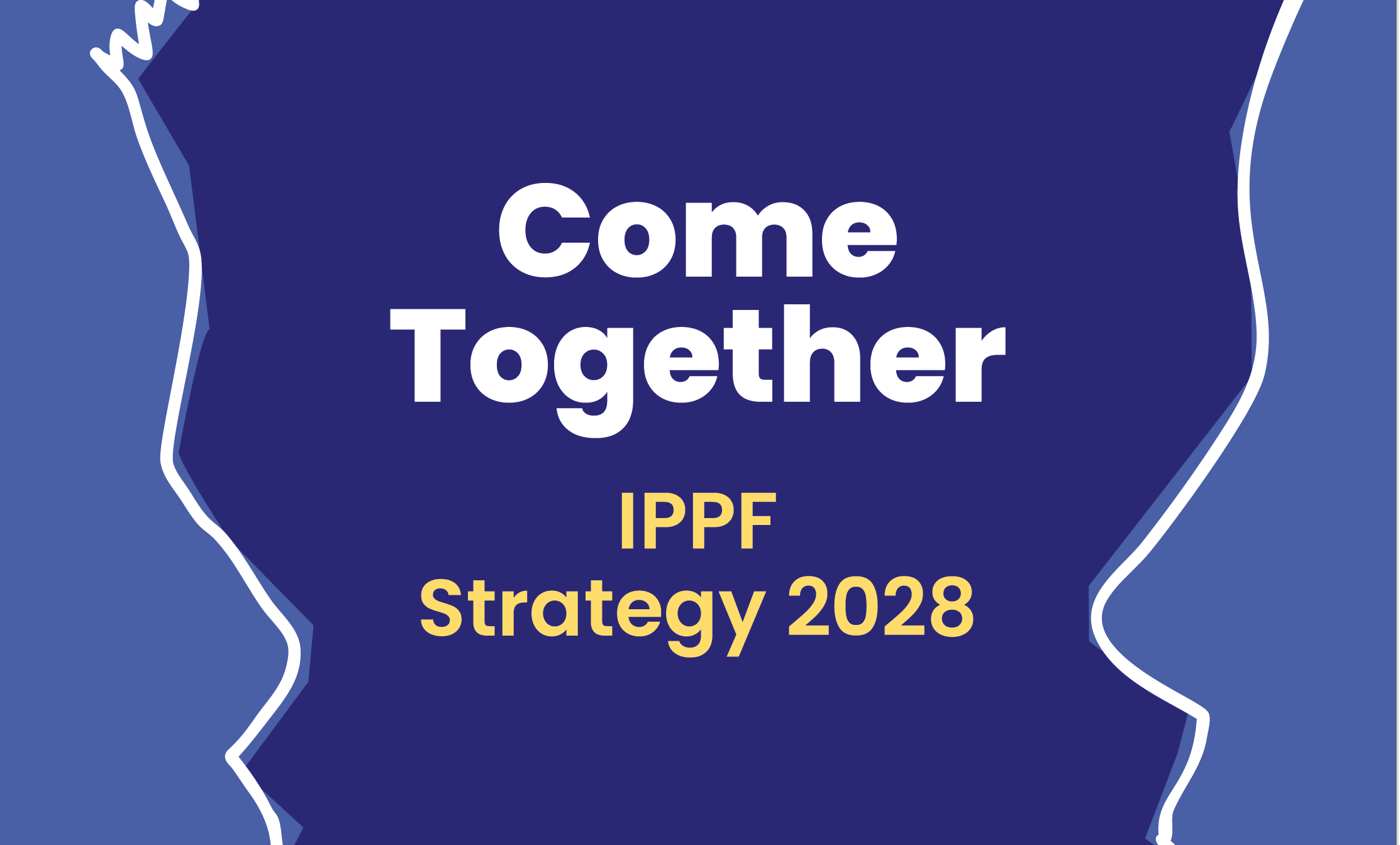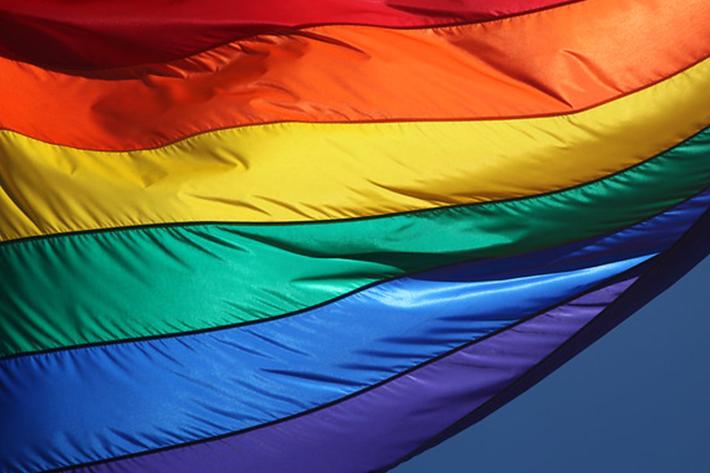
Spotlight
A selection of news from across the Federation

IPPF Statement on the 68th session of the Commission on the Status of Women (CSW)
IPPF welcomes the agreed conclusions of the 68th session of the Commission on the Status of Women (CSW), on the theme of “Accelerating the achievement of gender equality and the empowerment of all women and girls by addressing poverty and strengthening institutions and financing with a gender perspective”. IPPF actively engaged in the process by providing technical inputs to Member States, raising awareness about the interlinkages between SRHR, poverty, gender equality and the empowerment and human rights of all women and girls.
Filter our news by:


| 24 November 2022
Anti-Racism Declaration of Intent
Just over two years ago, the International Planned Parenthood Federation (IPPF) joined the world in condemning the brutal murder of George Floyd by police officers in the U.S., which sparked global protests and a subsequent global conversation on race and racism. The public outcry from IPPF was loud and sincere. However, it soon became clear that IPPF itself is not free from discrimination, biased views and racism. Staff began to rightfully question the perpetuation of racist and colonial tropes in our work, not only within the secretariat but across the Federation. They felt that IPPF's focus on equality, empowerment and ending discrimination must extend both to the workplace and beyond. An anti-racism report commissioned and delivered to us in 2021 also showed the cracks in our structures, with inequalities, power imbalances and racism spotlighted. As a leading global human rights organization focused on equality, empowerment, ending discrimination, and poverty eradication, it is especially critical that we internally reflect social justice principles. Spurred on by global resistance and internal concerns, we realized that we needed to find new pathways of work to live up to our reputation. The global reality today, where all kinds of rights are threatened daily, has also fuelled our responses to ensure that we stand up and ask ourselves difficult questions. We acknowledge and recognize that becoming an anti-racist organization is a constant learning curve. We, as IPPF, strongly oppose racism in all its forms and resolutely go for a cultural change that will shift the existing imbalances in power and process. In this regard, we accept our audit report's recommendations and have taken the first steps in ensuring that IPPF operates within a framework built on equity, diversity and inclusion. Our vision IPPF recognizes the fundamental need to move with expediency to radically dismantle and eradicate racism in all its forms. We need to install a framework that affirms the universality and inalienability of human rights, recognizing that racism violates them. These are the values that we aspire to, values that afford all our members and staff dignity and belonging while holding IPPF accountable. Our commitment The IPPF is committed to becoming a truly inclusive and anti-racist organization, where diversity is embraced, and promises to: Monitor and revisit our leadership structure at the secretariat and make it better reflect diversity. Embark on rewriting outdated policies and consider how racism is dismantled, along with its interplay with intersectionalities. Make our hiring, promotion and remuneration processes fair and equitable for all. Better reflect and address how discrimination based on race intersects with gender and sexuality, ethnicity, religion, and caste in a geographically diverse global federation such as ours in the way we work. Continue investigating ourselves to become a more inclusive, intersectional organization. Include clear markers for accountability in line with the objectives and indicators from the new IPPF strategy. Come together to reckon with our shared colonial past and use it to create a more open, fearless, and honest dialogue where we can address the persistent colonial legacies in our systems. Within the secretariat, we have already started implementing key recommendations from our report, including training with staff across all regions and sessions for IPPF leadership. A call for action This session seeks to build on this work and expand the focus to the Federation. It seeks to continue our discussion – where we look to the future and ask the question – what does a decolonized IPPF look like? Task forces, training sessions, and forums will be convened to ensure that all our systems, structures and safeguards reflect the anti-racist stance we are adopting and to continue our work to protect and fight for the rights of marginalized populations globally. To successfully achieve the radical change IPPF wants to make - to create a fully inclusive and respectful association that offers equal chances to all - IPPF needs you, its champions from the field that have been doing work on diversity, inclusiveness, equal chances and anti-racism for many years to support this process. We see this as a process in two tracks, where the secretariat's work is supported and strengthened by MA-driven initiatives. We ask MAs to join us In bringing this work to a higher speed and level by sharing your best practices, methods and tools. By providing your advice on what we can do and how to inclusively and authentically create spaces that are free of racism. By helping us move from questioning our processes that uphold colonial, white supremacist and imperialist ideas to developing new approaches that are driven by those involved and that truly address their needs. This is a walk together We are upending attitudes and ways of working that have been with us for too long. Our aim is to birth an environment that holds no discrimination and an organization that isn’t afraid of change. It's within our unlearning, learning and reflecting that we need to Come Together to advocate for change in our systems to act against oppression and injustices pervasive in our sexual and reproductive rights and services globally.

| 10 November 2022
Sexual and reproductive justice to deliver the Nairobi commitments
Today, the International Planned Parenthood Federation (IPPF) is helping launch the second report of the High-Level Commission on the Nairobi Summit, also known as the International Conference on Population and Development 25 (ICPD 25). The Commission is an independent advisory board comprised of 26 members from different sectors tasked with monitoring progress on the ICPD Programme of Action and Nairobi Summit Commitments. The programme of action contains commitments from 179 countries to put the rights, needs and aspirations of individual human beings at the centre of sustainable development, part of which includes achieving universal access to sexual and reproductive health for all. The report - ‘Sexual and reproductive justice as the vehicle to deliver the Nairobi Summit commitments’ - highlights sexual and reproductive justice as the key to the realization of the Nairobi Summit commitments. Sexual and reproductive justice is a universal concept. It includes the right to have or not have children, the right to parent one’s children in safe and sustainable environments, and the right to sexual autonomy and gender freedom. Monitoring the implementation of life-saving sexual and reproductive health and gender-responsive services is crucial to ensure accountability and human rights for all. However, while some progress has been made, many barriers persist, and millions worldwide still do not realize their sexual and reproductive rights. Progress on Nairobi Summit Commitments: Numerous country commitments made at the Nairobi Summit align with a sexual and reproductive justice framework. They pay explicit attention to marginalized and vulnerable populations, notably people with disabilities, refugees, migrants (particularly migrant women), young people and older persons. Indigenous peoples, people of African descent and other ethnic minority groups have received less attention. A slew of new reproductive rights legislation followed the Nairobi Summit, suggesting a basis for a sexual and reproductive justice framework. The high number of commitments prioritizing sexual and gender-based violence offers a powerful entry point for promoting sexual and reproductive justice. On the Summit’s Global Commitments, some improvement is evident in meeting unmet need for family planning. But no region has registered positive movement towards zero preventable maternal deaths. Greater access to family planning has yet to translate into better maternal health outcomes. There is some progress in offering comprehensive and age-responsive information and education on sexuality and reproduction and adolescent-friendly, comprehensive, quality and timely services. Certain regions and countries have advanced in providing timely, quality and disaggregated data. More must be done, but this creates opportunities for ensuring that data capture intersecting challenges and are used to inform laws, policies and programmes. Domestic and international finance is critical to sexual and reproductive justice but persistently lags commitments. More than 4 billion people globally will lack access to at least one key sexual and reproductive health service during their lives Dr Alvaro Bermejo, Director-General for the International Planned Parenthood Federation, said:

| 02 November 2022
IPPF at ICFP 2022
IPPF will be involved in a series of panel discussions and events concerning global abortion rights, disability and inclusion, universal health coverage, humanitarian response and sexual and reproductive health. Be sure to visit us at Booths 11 and 12, and please see below to download the full IPPF at ICFP schedule. What is ICFP? The International Conference on Family Planning is the world’s largest convening of family planning and SRHR experts. It has convened the global development community around a shared vision of universal access to family planning since 2009. ICFP is a network of advocates, researchers and scientists, community and government leaders, health practitioners, economists, conveners, civil society members, and young people who are joined by the belief that everyone deserves access to family planning services and products, no matter what. ICFP is more than a conference. It’s a platform. A community. And a movement.

| 08 September 2022
IPPF launches new and improved Medical Abortion Commodities Database
The International Planned Parenthood Federation has redeveloped and relaunched its Medical Abortion Commodities Database. The updated site was designed to be more user-friendly with improved accessibility on both desktop and mobile devices. MedAb.org is the only public source of information on country-level availability of quality medical abortion commodities. Launched in September 2018, MedAb.org has filled a knowledge gap and has been a reliable source of information on availability of quality medical abortion products at country level for four years. The site currently contains product information for 102 countries, including 22 brands of misoprostol, 44 brands of mifepristone and 15 brands of combipacks. In 2021, site use grew significantly, with more than 30,000 active users, so IPPF undertook multiple analyses to understand more about these users. We redesigned the site to improve user experience for a broader range of user types, including researchers and academics. With more than half of site users identifying as individuals seeking abortion care, we improved signposting to trusted partners so they can access reliable and timely information. Catherine Kilfedder, IPPF’s Senior Programme Adviser, Abortion, said: “We needed to rebuild our site to improve technical functionality, but we saw an opportunity to simultaneously improve user experience. We embarked on a human-centred design project to understand our users and design a site to better meet their needs.” Site use continues to grow, with more than 50,000 active users in the first eight months of 2022, and IPPF is thrilled to respond to this growing user base with a new and improved MedAb.org.

| 24 August 2022
Dr Chipo Gwanzura confirmed new IMAP co-chair
IPPF would like to congratulate Dr Chipo Gwanzura who has been confirmed as the new co-chair for the International Medical Advisory Panel (IMAP), alongside the current chair Dr Michael Mbizvo. Dr Gwanzura has demonstrated expertise in scientific research at clinical and community levels on maternal and child health, and sexual and reproductive health and serves on numerous scientific, knowledge and evidence SRH partnerships. Dr Gwanzura is passionate about advancing sexual and reproductive health rights of women and adolescents globally, regionally and locally. The IPPF team is looking forward to working closely with Dr Gwanzura during her tenure and engaging with her on the strategic priorities within the Federation. Learn about the other IMAP members

| 18 August 2022
Ugandan LGBTQI+ organization banned by government
On 3 August 2022, the Ugandan National Bureau for Non-Governmental Organizations unfairly halted the activities of Sexual Minorities Uganda (SMUG) – a prominent lesbian, gay, bisexual, transgender, and queer (LGBTQI+) rights organization – for failing to meet the bureau's registration requirements. SMUG has provided sexuality education and advocated for LGBTQI+ healthcare since 2004 and is well-known for providing services and guidance to the LGBTQI+ community in Uganda. The organization also contributes to Uganda's health goals, including the country's HIV/AIDS strategy, which includes the provision of healthcare to vulnerable and marginalized populations. Although SMUG applied to the Uganda Registration Services Bureau (URSB) in 2012, the URSB declined the organization's request on the grounds that SMUG was "operating illegally", a position the organization petitioned with no positive response. In a clear case of harassment and restrictions against Ugandan rights groups working on LGBTQI+ rights, the URSB further asserted that registering SMUG's name would be difficult, calling it "undesirable and un-registrable". In response to the ban the Africa Regional Director for the International Planned Parenthood Federation (IPPF) urged the Ugandan government to review its decision to suspend SMUG and to work towards accommodating the organization's mandate of advancing the rights of the LGBTQI+ community in Uganda. Marie-Evelynne-Petrus-Barry said: "As a global human rights organization and the world's largest sexual and reproductive healthcare provider, the International Planned Parenthood Federation upholds the rights of all people, regardless of their sexual orientation. "The Ugandan government's ban of SMUG has created huge anxiety among health service providers, human rights defenders, and members of the LGBTQI+ community, who risk their lives daily so that LGBTQI+ people can access healthcare and information just as any other person would. "We ask the Ugandan government to urgently reconsider its decision to suspend SMUG and to put an end to laws and policies that criminalize, target and endanger members of the LGBTQI+ community and the organizations that advocate for their rights." Petrus-Barry added: "IPPF works to ensure that people with diverse sexual orientation, gender identity and/or expression, and sex characteristics (SOGIESC) – including lesbian, gay, bisexual, trans, and intersex people have access to the full set of human rights enshrined in international human rights laws. IPPF is willing to work with the Ugandan government and other stakeholders to ensure that all Ugandan people can access these rights without restraint." For media enquiries, please contact Mahmoud Garga, Lead Specialist – Strategic Communication, Media Relations and Digital Campaigning, IPPF Africa Regional Office (IPPFARO) on [email protected] or +254 704 626 920 ABOUT IPPF AFRICA REGION (IPPFAR) The International Planned Parenthood Federation Africa Region (IPPFAR) is one of the leading sexual and reproductive health (SRH) service delivery organizations in Africa and a leading sexual and reproductive health and rights (SRHR) advocacy voice in the region. Headquartered in Nairobi, Kenya, the overarching goal of IPPFAR is to increase access to SRHR services to the most vulnerable youth, men and women, in sub-Saharan Africa. Supported by thousands of volunteers, IPPFAR tackles the continent's growing SRHR challenges through a network of Member Associations (MAs) in 40 countries. We do this by developing our MAs into efficient entities with the capacity to deliver and sustain high-quality, youth-focused and gender-sensitive services. We work with Governments, the African Union, Regional Economic Commissions, the Pan-African Parliament, and United Nations bodies, among others, to expand political and financial commitments to sexual and reproductive health and rights in Africa. Learn more about the IPPF Africa Region on their website or follow them on Facebook, Twitter, Instagram and YouTube.














